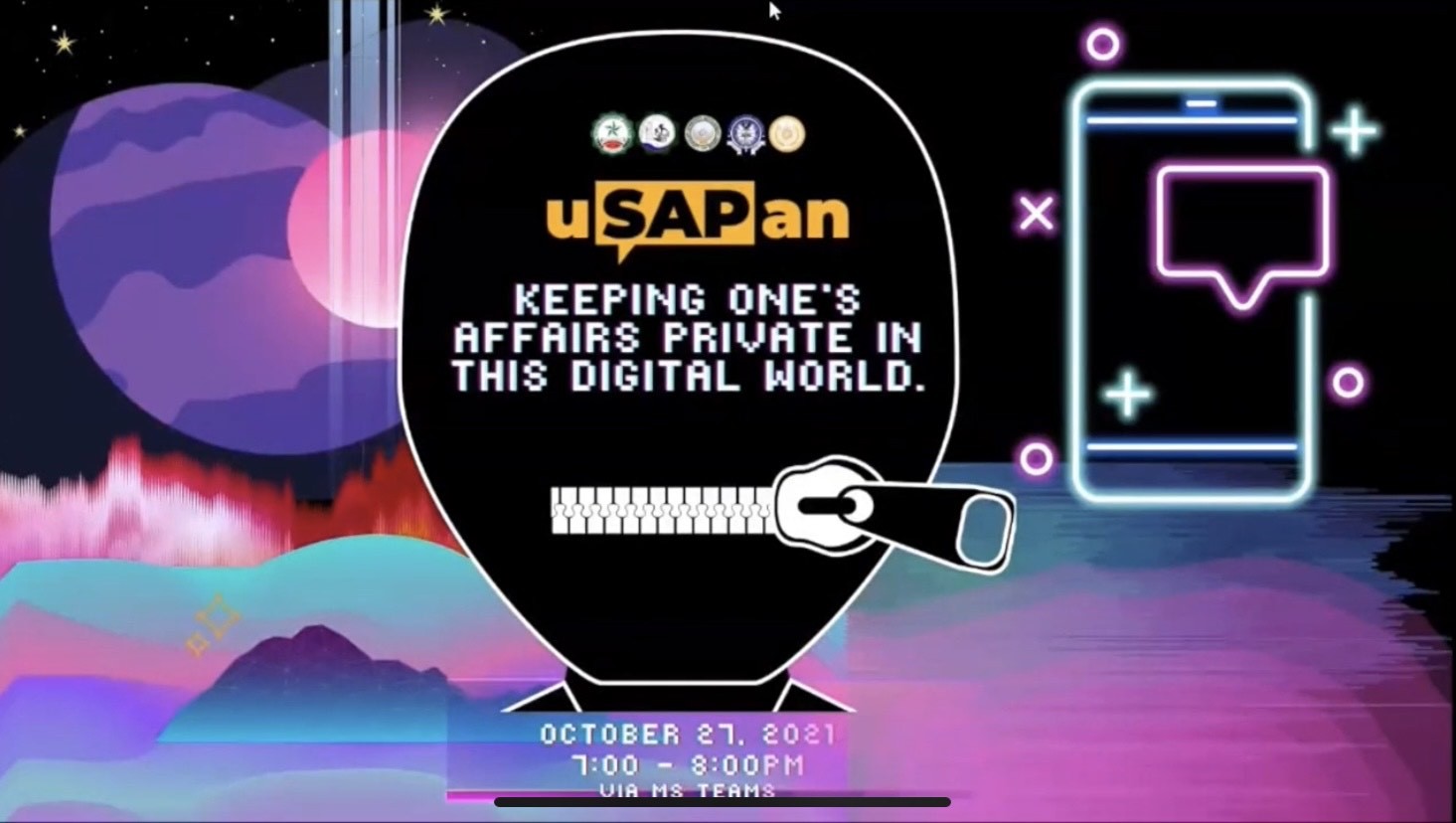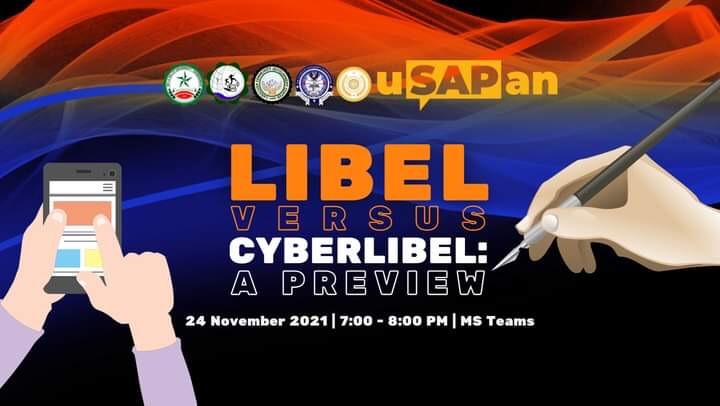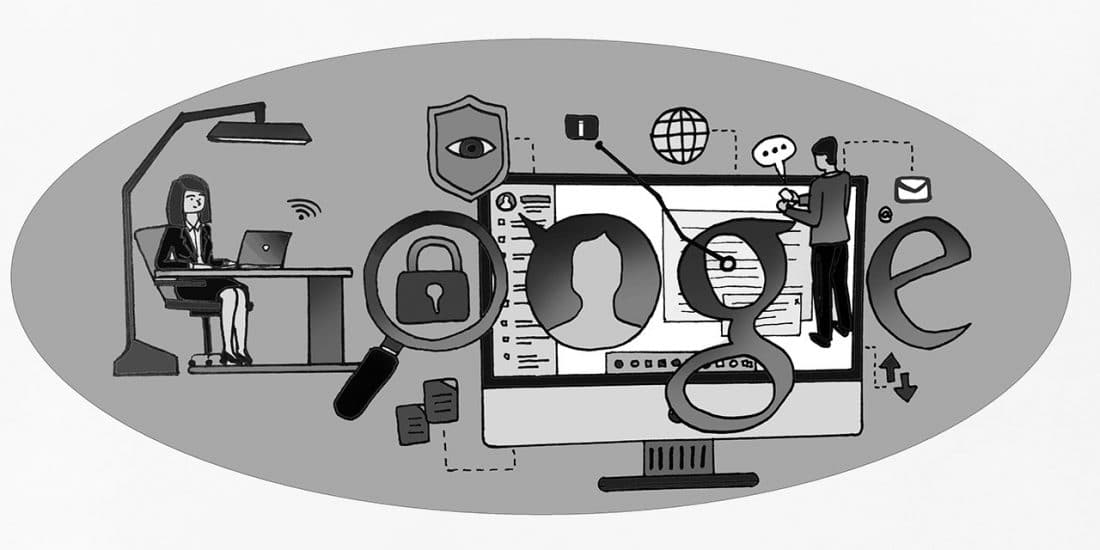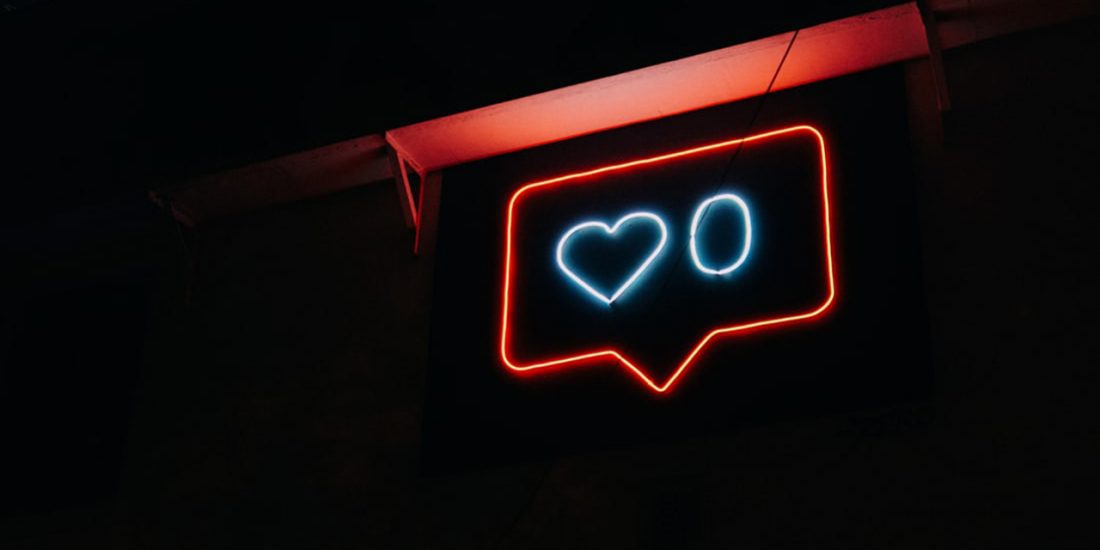One Step Ahead: Why it helps to keep digital affairs private amid cyber dangers
Exploring the vulnerabilities of information accessibility in the online world, the Social Sciences Department (SSD), in collaboration with Lasallian Community Development Center (LCDC), International Development Program Council (IDPC), and Political Science Program Council (PSPC) underscored the significance of data privacy amid the digital age in its monthly uSAPan series on October 27 via MS Teams.
Dubbed as “Keeping One’s Affairs Private in this Digital World,” the forum featured Atty. Jannell Cajote Gerodiaz as the event’s primary guest speaker, with a student leader sitting as the webinar’s discussant.
Dangers of the digital landscape
For a generation that basically lives online, Gerodiaz explained the risks of having almost all of our personal information and data accessible by anyone within the digital world, especially by those whom Gerodiaz refers to as “bad fishes of the sea”. These bad fishes retrieve our information without consent and use it for personal gain may it be through phishing, smishing, vishing, whaling, or angler-phishing, which are used as bait for people to easily give private information.
To avoid falling for these tricks, student discussant and former International Development Program Council (IDPC) Chief Executive Officer Gail Bianes explained how we tend to be complacent with sharing our data online.
As an example of smishing or SMS phishing, Bianes recalled her personal story of identity theft where some messages used her mother’s name to solicit money from others. “We would receive some messages that use her (mother’s) name ‘tas manghihingi ng money or load and you know, fortunately my grandmother was very vigilant and we did not fall for those schemes,” she shared.
When checking the legitimacy of soliciting businesses, Gerodiaz emphasized the importance of having a keen eye on the logo, grammar, language, and source of their sites.
“Right now, yung mga phishing na mga sites, tinutulad na nila yung pangalan nila sa legitimate businesses,” Gerodiaz warned students.
As we keep our browsers safe from bad fishes, there are still patterns or algorithms on the web where information matches what we click, read, and interests. There are times when we are unaware of websites retaining our data, translating it into money such as how business models generate profit by selling our personal information to third-party companies.
“Parang sa Facebook ‘yan, nagclick ako ng bagoong. Kasi, parang ang sarap ng isang bagoong, aba, maya maya kung ano-anong ads na ng bagoong yung nakikita ko… kasi, merong algorithm na tinatawag,” Gerodiaz shared as she discussed how social media algorithms work.
Pro-techting your account
Although there are looming threats to data privacy, we can develop ways to be cautious, and eventually learn to navigate the digital world safely.
Touching on the topic of safe internet usage, Gerodiaz reminded participants that it is unnecessary to share everything in the digital world.
Providing tips on keeping one’s account secured, the speaker suggested that social media users must use strong passwords or a password manager to create an impenetrable security for hackers. Bianes also advised students to use Virtual Private Network (VPN) which prevents one’s IP address from being tracked.
As for protecting personal information, Gerodiaz urged participants to always guard their Personal Identifiable Information (PII) and Personal Health Information (PHI). PII includes name, birthday, phone number, school number, license number, personal photos, and etc., while PHI consists of blood type, medical abstract, and even vaccination cards that people usually flaunt in social media..
Meanwhile, the speaker also encouraged others to think before installing an application as it gets so much information, sometimes going beyond what is required.
Maintaining data privacy in the online setup
As the pandemic restricted classes to purely virtual interactions, the forum also shed light on the limitations of asking personal information to students, and posting vital documents publicly such as grades and assignments.
Focusing on what privacy and consent means in the new educational setup, Gerodiaz acknowledged that there should be explicit consent from students when opening microphones and videos in conducting synchronous classes. She added that announcements involving a student’s personal information should be avoided as well.
To this end, Gerodiaz assured students that they have the right to complain if their data privacy is violated, and provided an email address where they can file a complaint.
“Please, you (students) have the right to complain. You have the right to file a complaint with the National Privacy Commission and this can be even done online,” she stated.
***
In a tech-savvy generation, exercising and valuing privacy gives us a step ahead from manipulative algorithms and abusive peddlers of cyber dangers. The more we keep our digital affairs private, the more we create an impenetrable security for our personal data – a treasure that is even more precious than gold.
Slider courtesy of Political Science Program Council.





